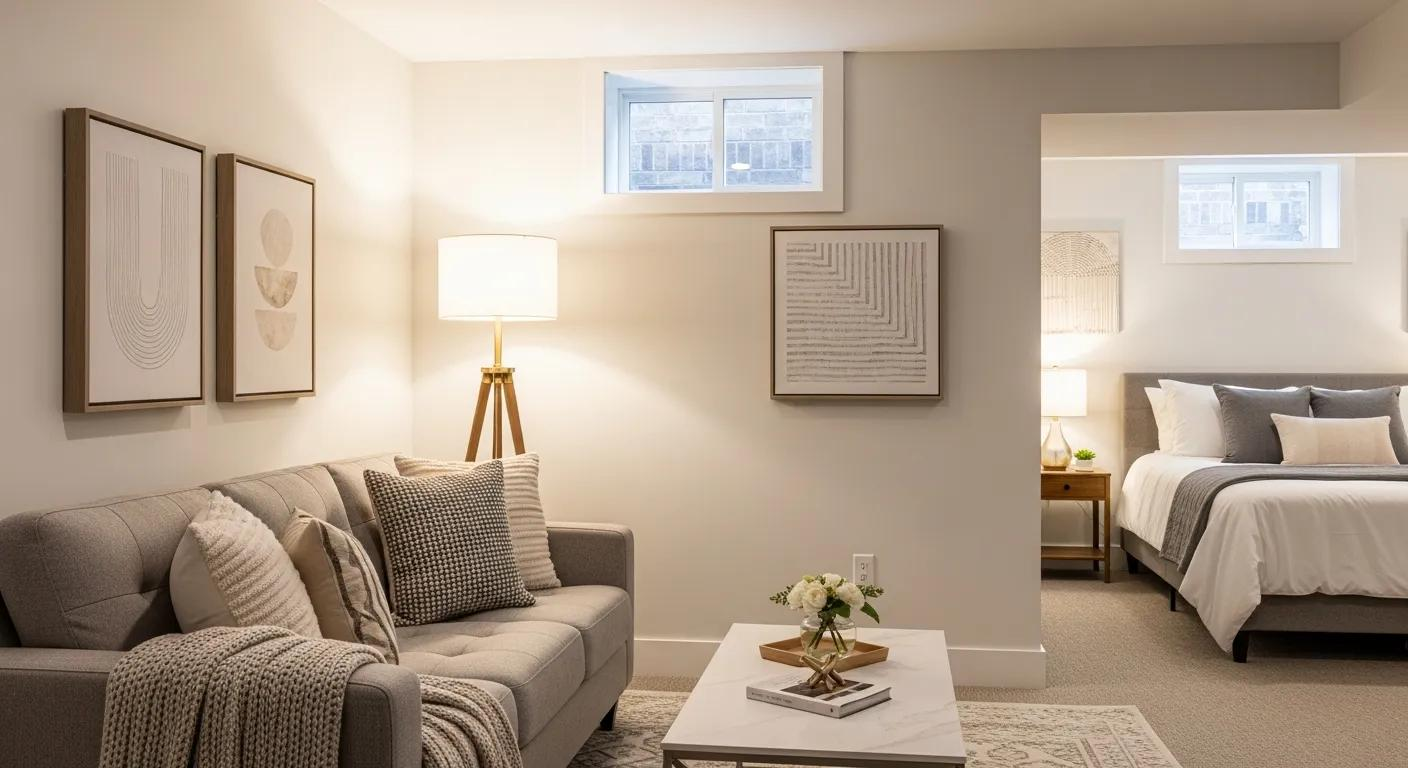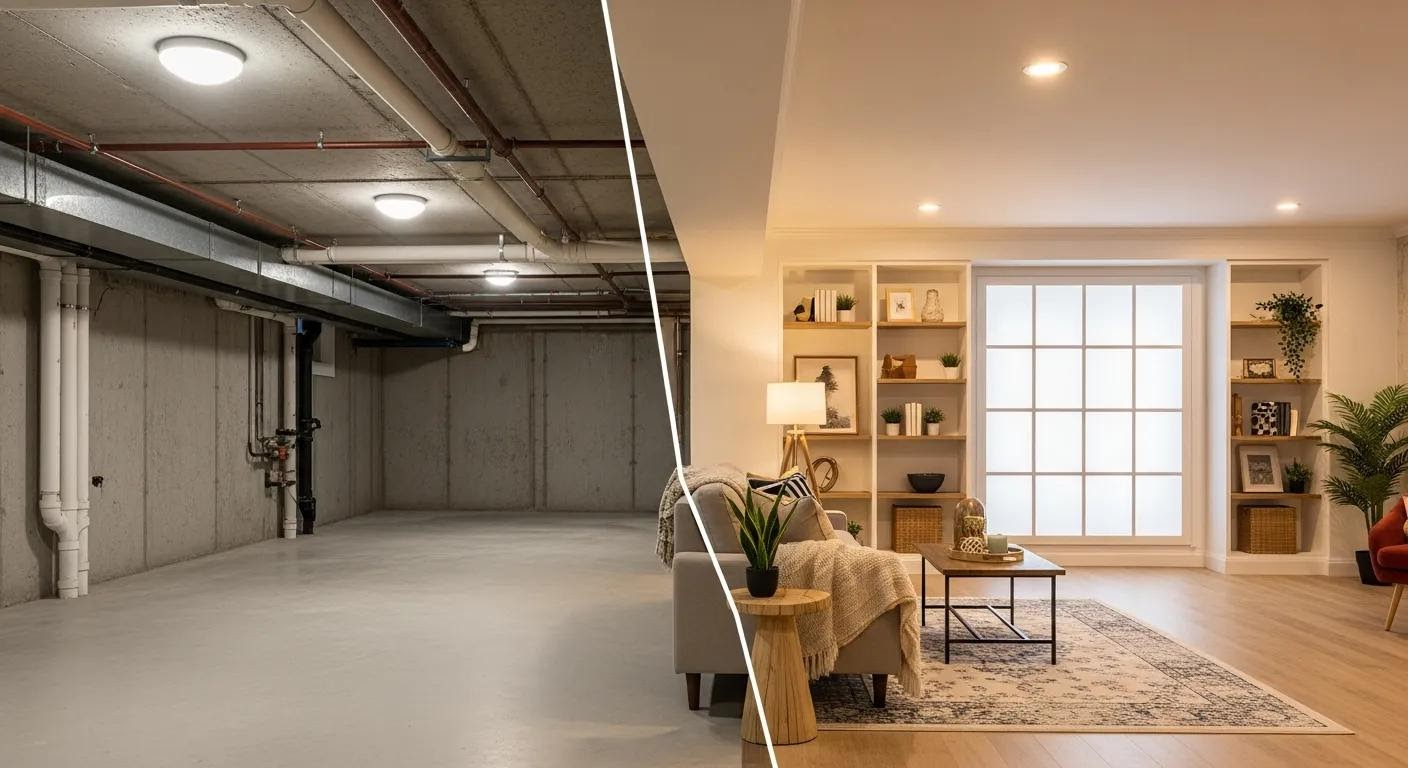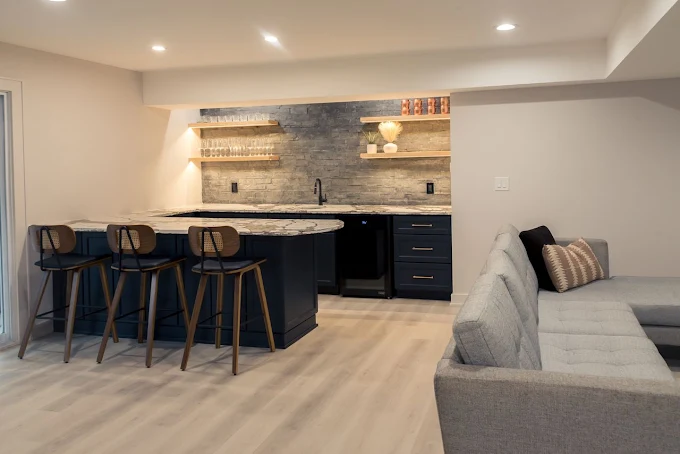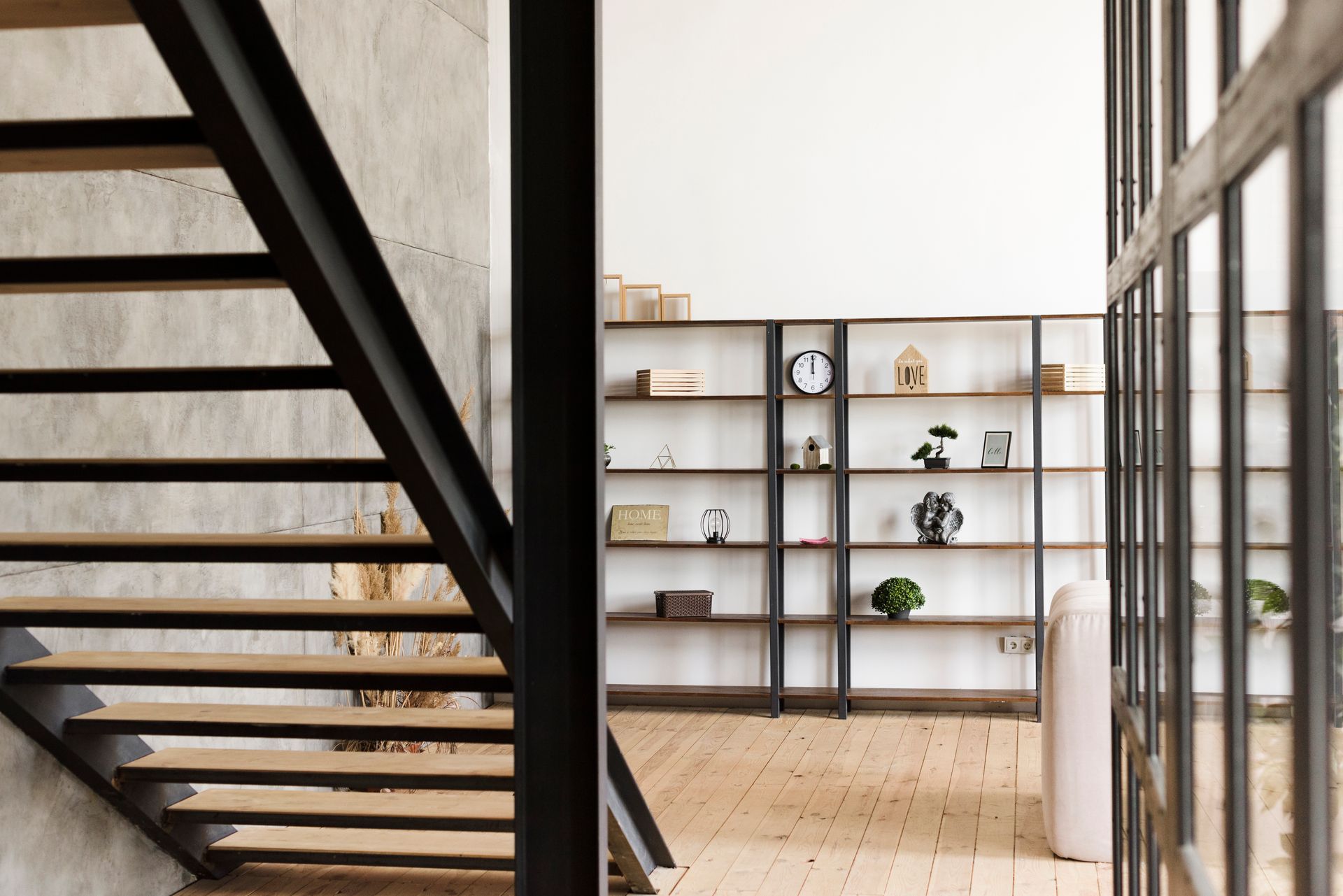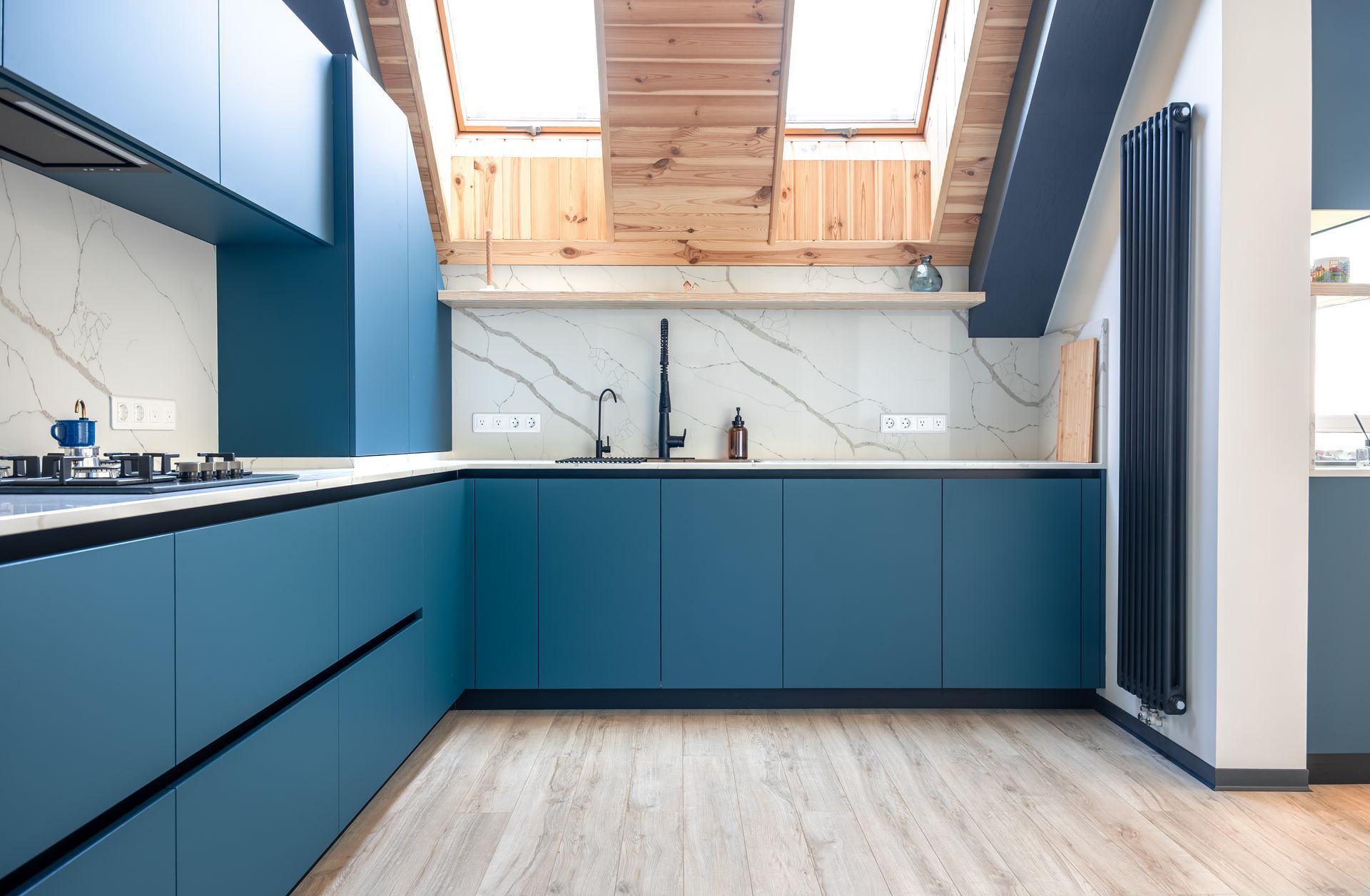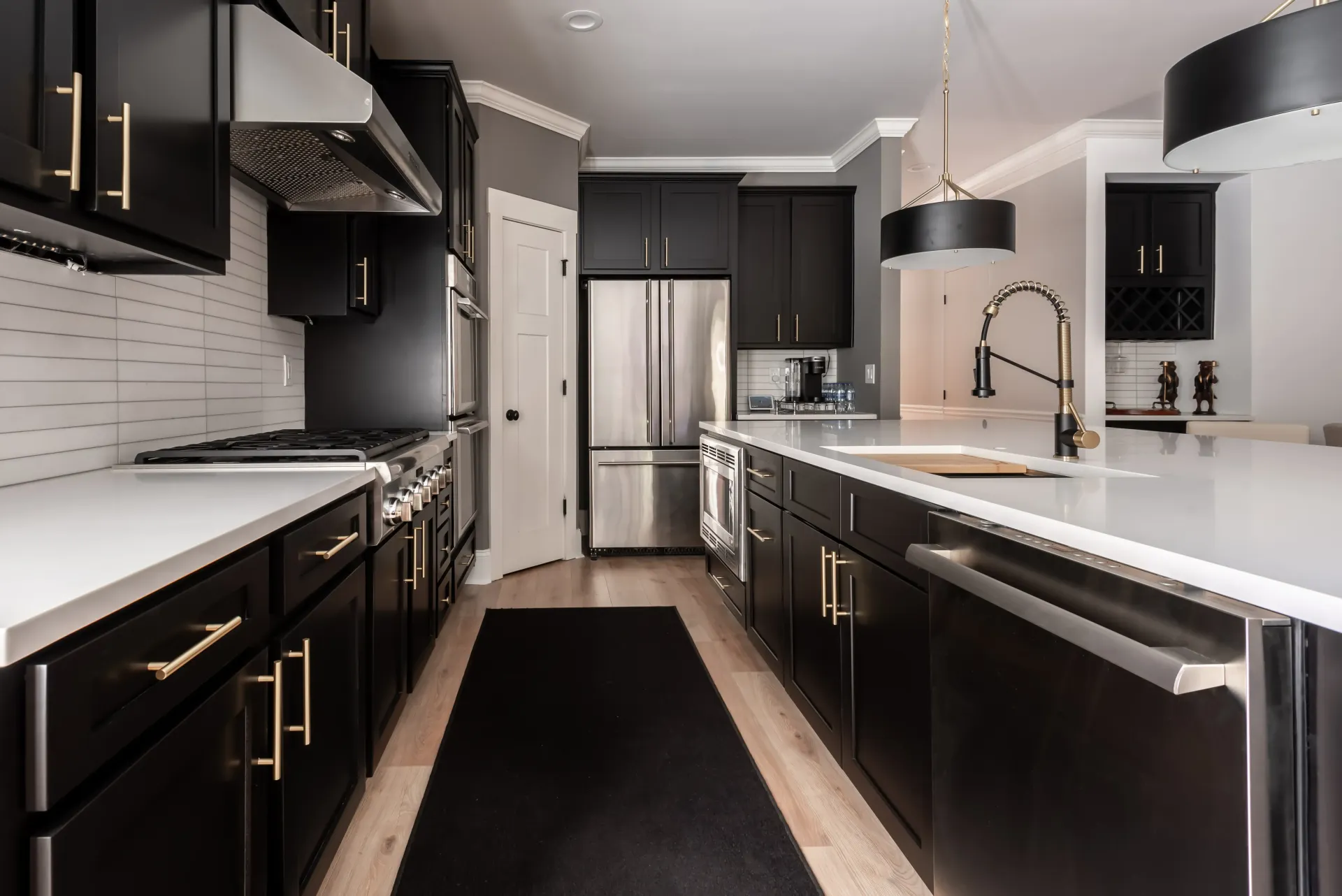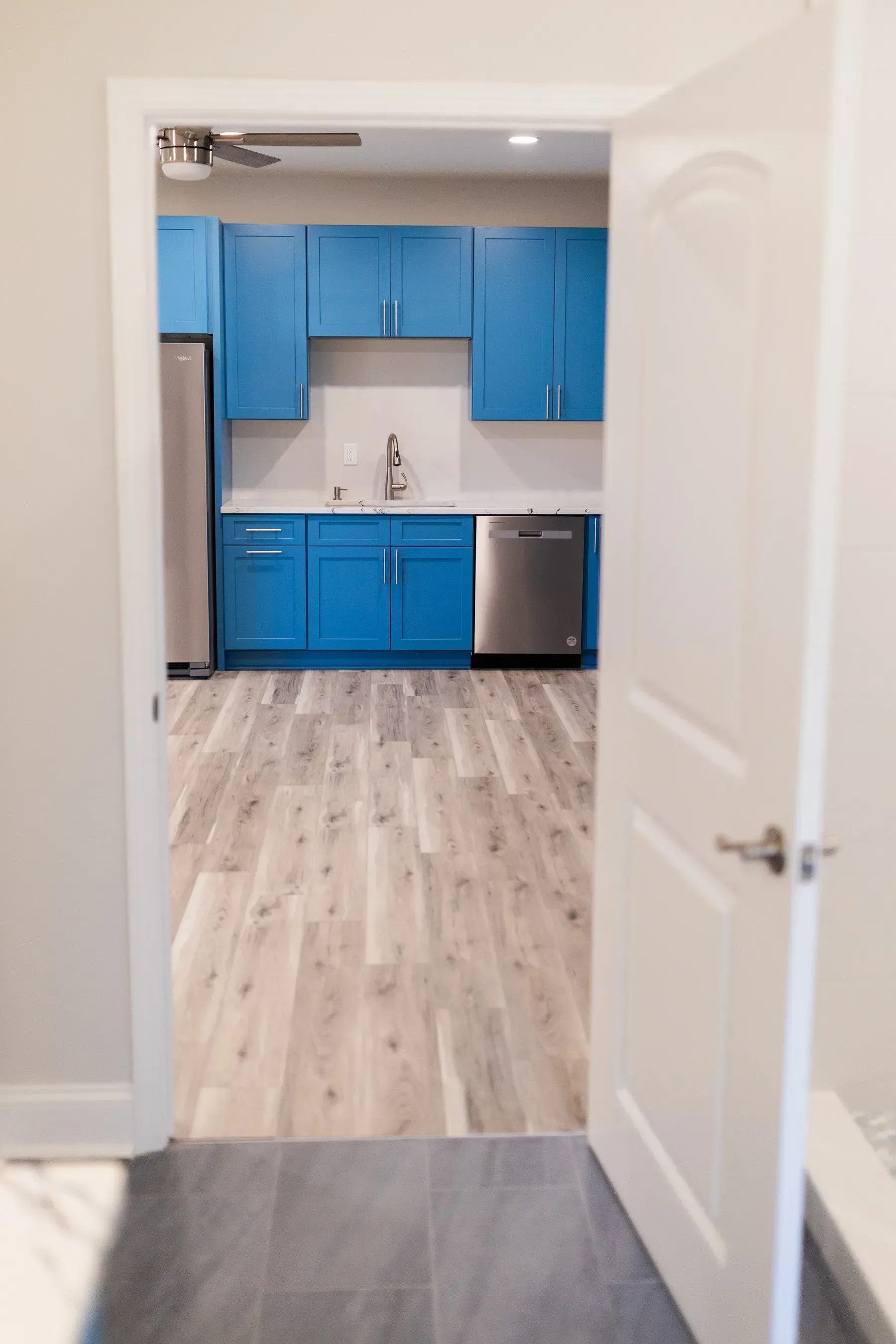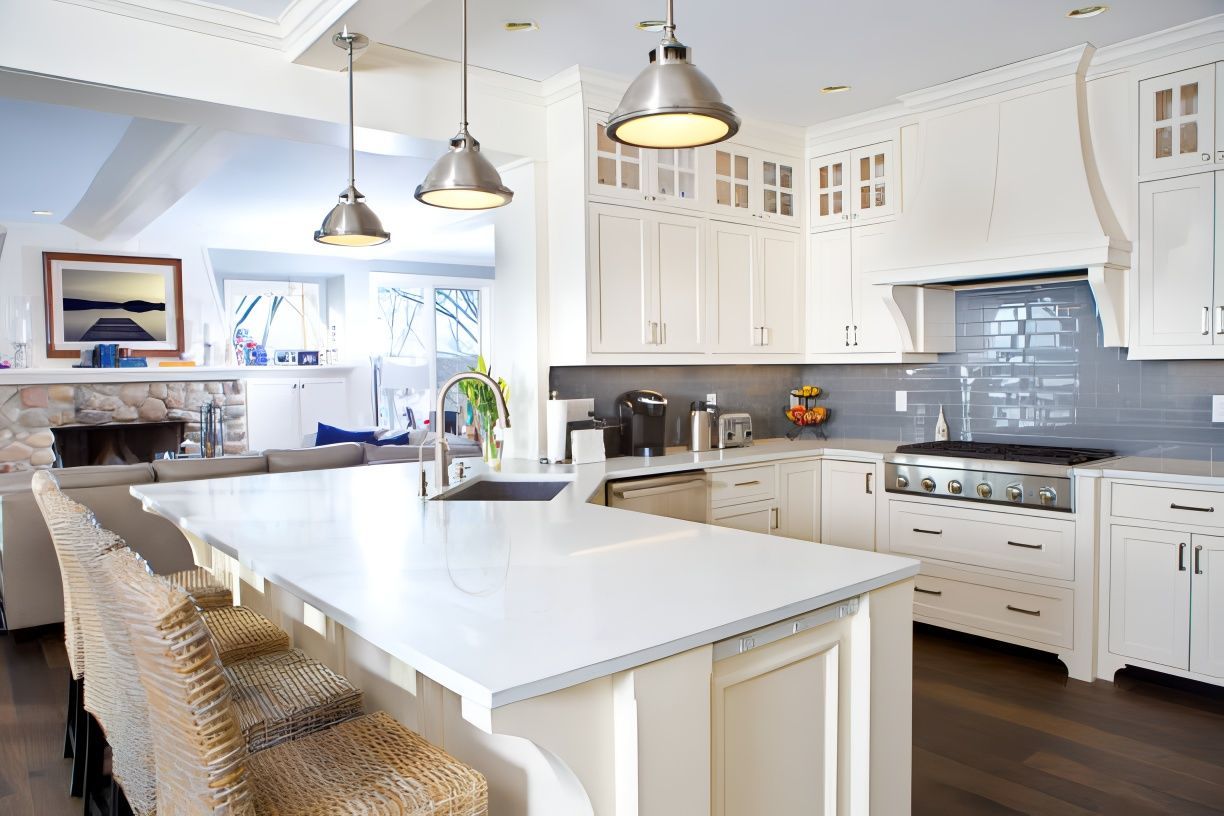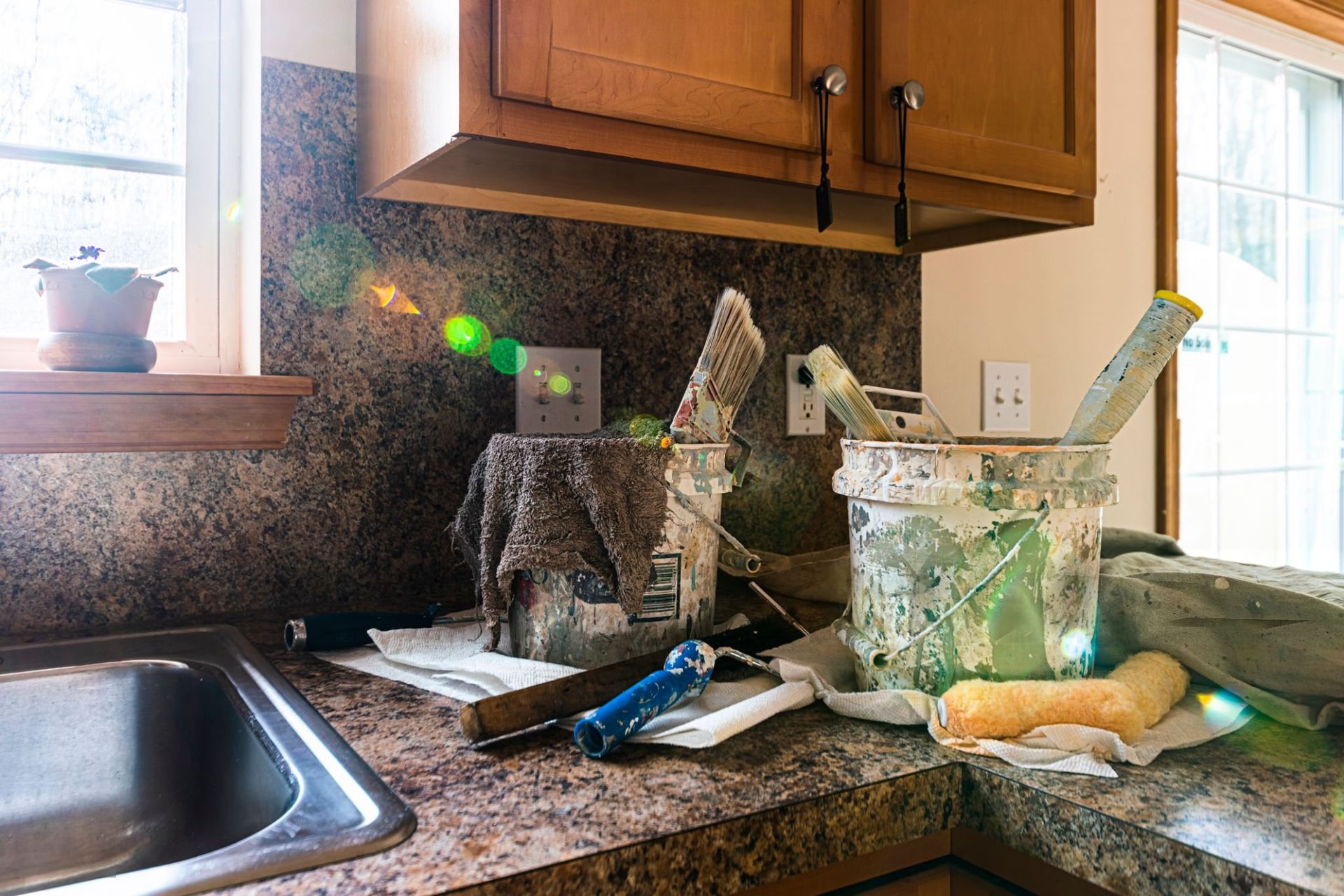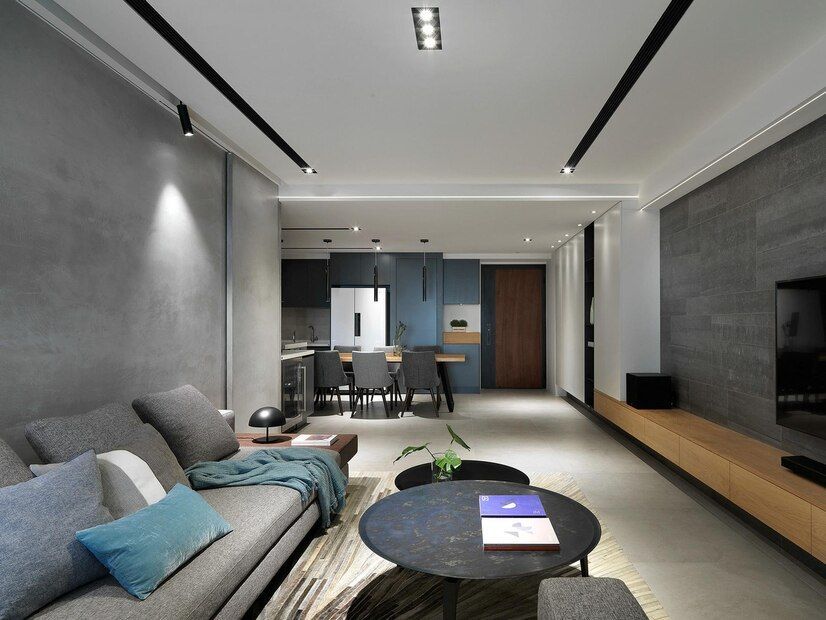Your Guide to the Best Basement Flooring: Durability Meets Style
November 10, 2025
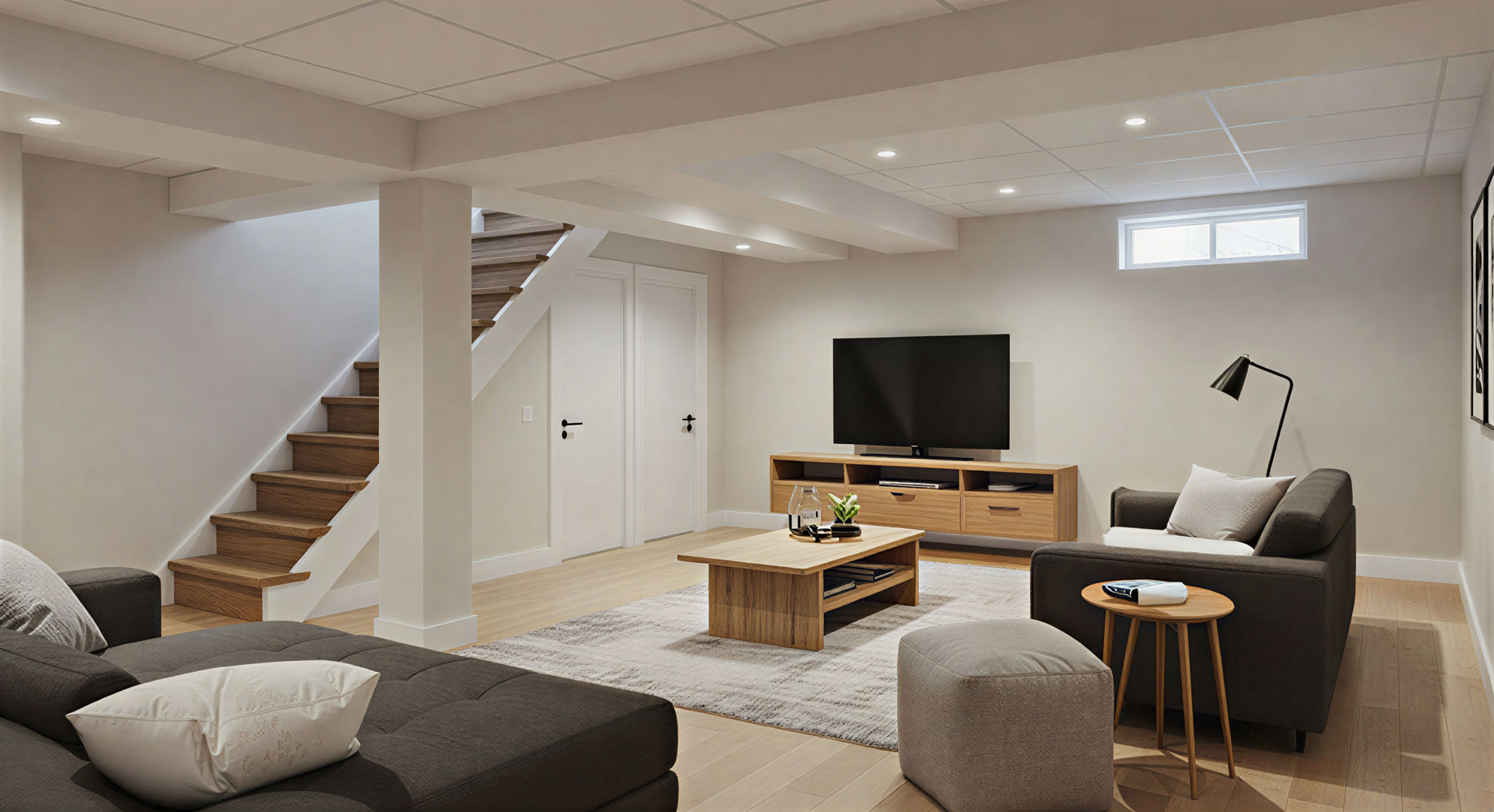
When it comes to basement floors, you need a solution that’s tough against moisture, built to last, and looks great, especially here in North Georgia’s humid environment.
This guide will walk you through the top choices to achieve both, a key consideration for any basement remodeling in Cumming.
You’ll discover what each flooring type is, why it’s a smart pick for below-grade spaces, and which options are perfect for common basement uses like family rooms, home gyms, or storage areas.
TL;DR — Your Guide to the Best Basement Flooring: Durability Meets Style
- North Georgia basements need moisture-resistant floors that still look great
- LVP, porcelain tile, and epoxy lead for durability and water resistance
- Match to use: gyms and workshops choose waterproof; media rooms choose cushioned
- Test moisture first: visual check, plastic sheet 24–72 hours, pro mapping
- Licensed local installs—GA Certified GC RBCO007465—with free design consults
Schedule your complimentary basement flooring consultation in Cumming today
1. Luxury Vinyl Plank (LVP)
Luxury Vinyl Plank (LVP) is a synthetic flooring made of multiple layers, featuring a protective wear layer over a stable core. It masterfully mimics the look of wood or stone while offering excellent water resistance.
LVP provides a quick style upgrade with minimal upkeep and easy cleaning, making it a practical and stylish choice for family areas and finished basements.
Why LVP Shines in Humid Climates
LVP handles humidity like a champ because many options feature waterproof cores and robust wear layers that prevent moisture absorption and keep the material from expanding or contracting.
Proper subfloor prep and a vapor barrier are key to protecting against concrete moisture, and it’s crucial to select products specifically rated for below-grade installation.
Regular cleaning and avoiding standing water will keep the wear layer and overall appearance in top shape. These simple steps minimize issues, making LVP a durable and attractive basement flooring solution.
The Upsides and Downsides of LVP for Basements
- Pros: Waterproof and tough: It shrugs off spills and typical basement humidity without warping.
- Pros: Endless style: A vast array of wood and stone looks to complement any modern decor.
- Cons: Surface temperature: Can feel a bit cool underfoot unless you add an underlayment or radiant heat.
- Cons: Installation details: Some rigid systems benefit from professional assessment and precise moisture control.
2. Ceramic and Porcelain Tiles
Ceramic and porcelain tiles are dense, fired-clay surfaces known for their incredible durability.
Porcelain varieties, in particular, have extremely low water absorption, making them an excellent choice for basements prone to moisture. Tile is ideal when you want a floor that lasts for ages, resists stains, and offers limitless design possibilities in terms of color, texture, and pattern.
Keep in mind that tile can feel cold underfoot, so pairing it with area rugs or installing underfloor heating can significantly boost comfort in living spaces.
Proper subfloor preparation, which includes ensuring it's level, using membranes, and sealing grout, is vital for tile’s longevity and preventing moisture-related problems.
The Pros and Cons of Tile in Basements
- Pros: Built to last: Resists scratches, stains, and heavy foot traffic for decades.
- Pros: Design freedom: Countless finishes and realistic natural material looks to elevate your style.
- Cons: Cold and hard: Requires insulation strategies to make living areas feel cozy.
- Cons: Grout upkeep: Needs regular sealing and cleaning to stay looking its best.
3. Epoxy Flooring
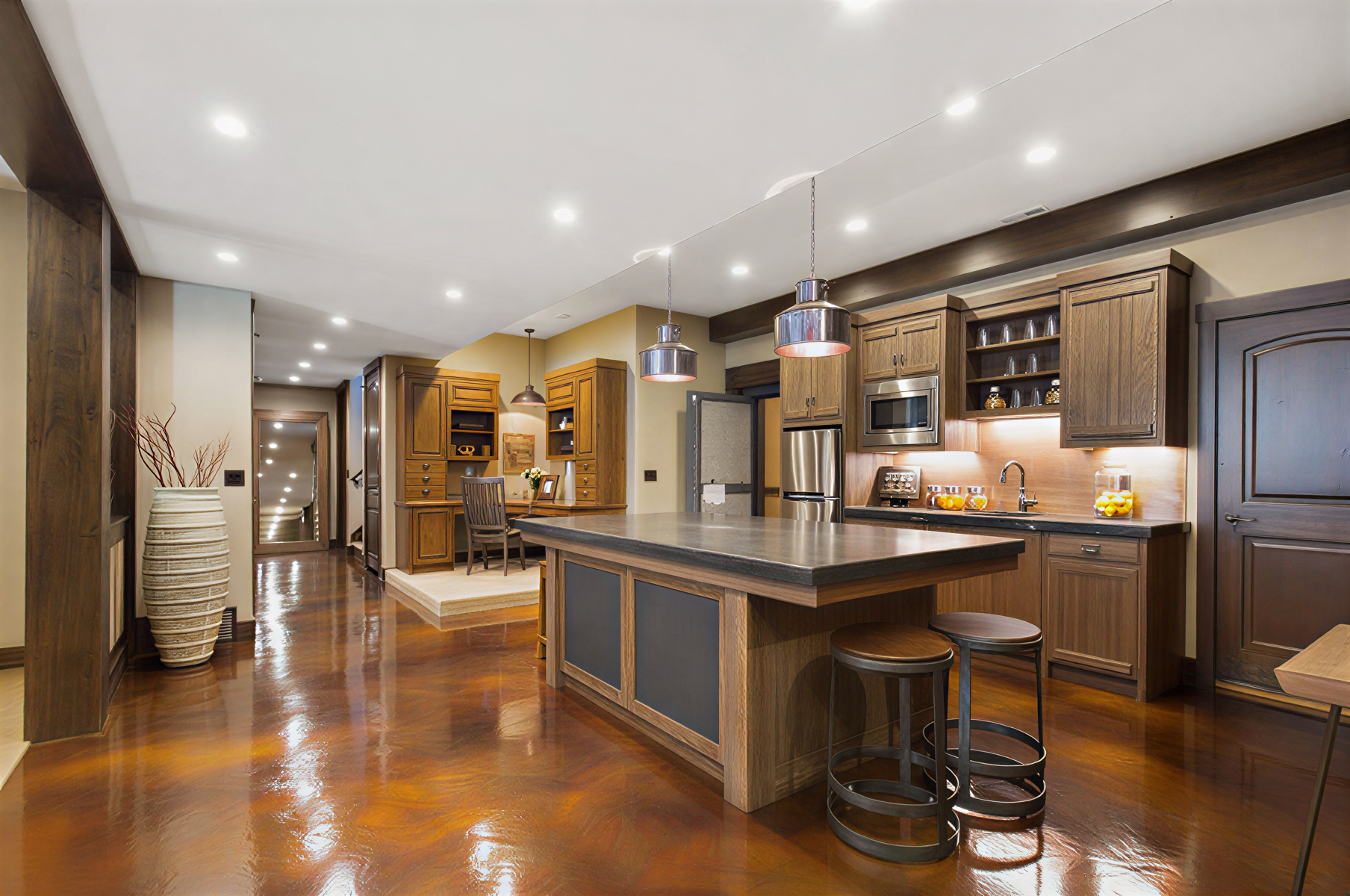
Epoxy flooring is a resin-based coating applied directly to concrete, creating a seamless, chemical-resistant surface that’s perfect for workshops, garages, and high-traffic basement areas.
The magic happens when the resin chemically bonds to properly prepared concrete, resulting in a tough, impermeable finish that can handle spills and heavy loads when installed correctly.
Epoxy offers a modern look with options for color, decorative flakes, and varying gloss levels, ideal for spaces where a hygienic, continuous surface is a must.
Successful epoxy installations hinge on thorough moisture testing, concrete profiling, and professional application to ensure strong adhesion and a long lifespan.
4. Carpet Tiles and Engineered Wood
Carpet tiles and engineered wood bring warmth and comfort to your basement.
Carpet tiles offer the convenience of modular replacement, while engineered wood provides the authentic look of real wood with better stability than solid hardwood.
Carpet tiles with moisture-resistant backing are a great choice for finished playrooms or media rooms, as they offer cushioning and help with acoustics.
Engineered wood can work well in drier basements when installed as a floating floor over a vapor barrier.
Both options prioritize comfort and style but require careful moisture assessment and the right underlayments to prevent mold or warping.
Choosing the best option and planning its maintenance depends on your expected traffic, moisture risks, and long-term durability goals.
Making Carpet Tiles Work in Your Basement
To use carpet tiles successfully, it’s essential to conduct moisture tests and select tiles with moisture-resistant backing and antimicrobial treatments where appropriate.
Their modular nature means you can easily replace individual tiles if one gets stained or damaged, lowering the overall lifecycle cost.
Regular vacuuming and occasional professional cleaning will keep them looking great and maintain good indoor air quality.
These steps make carpet tiles a practical and comfortable choice for specific basement applications.
Engineered Wood: Understanding Its Limits and Safeguards
Engineered wood uses a layered core to resist changes in dimension better than solid wood, but it still needs a vapor barrier and a dry environment to prevent long-term warping.
Installing it as a floating floor over approved subfloor systems and underlayments provides insulation and reduces noise transmission. However, engineered wood is best suited for basements with controlled humidity and minimal flood risk.
If moisture is a concern, waterproof alternatives like LVP might be a more durable choice in the long run. Understanding these safeguards helps you determine if engineered wood is the right fit for your basement.
5. Cork Flooring

Cork flooring is an environmentally friendly option that’s warm and excellent at dampening sound. It’s made from compressed cork granules and finished with a protective coating, offering comfort and insulation in living spaces.
Cork’s natural cellular structure provides a comfortable feel underfoot and reduces impact noise, making it a great choice for family rooms and dens where comfort is key.
Because cork can be sensitive to moisture, using sealed cork systems and reliable vapor barriers is essential to limit water exposure and extend its lifespan.
With the right sealing and maintenance, cork can beautifully balance comfort, sustainability, and design for suitable basement areas.
Sealed Cork Options for Basement Installations
Sealed cork systems involve applying multiple coats of polyurethane or similar protective finishes to create a surface that resists moisture and staining.
Subfloor preparation includes a continuous vapor barrier and ensuring the slab is level to prevent moisture pooling or concentrated stress that could compromise the seals.
Periodically recoating the sealant as part of your maintenance routine will keep the system effective against humidity and foot traffic. These practices make cork a viable option for select finished basement rooms.
What Should Homeowners Think About When Picking Basement Floors?
When choosing basement flooring, homeowners should consider the moisture risk, how the space will be used, the condition of the subfloor, comfort requirements, style preferences, and how much maintenance you’re willing to do.
Start by assessing the moisture levels to determine if a waterproof surface is a must-have. Then, match the flooring’s durability to its intended use. Heavy equipment needs different materials than a playroom.
For living spaces, think about warmth and acoustics, and select materials and underlayments that meet those comfort goals.
Matching flooring to its intended use is straightforward: choose durable and waterproof options for gyms and workshops; opt for warm and cushioned materials for playrooms and media areas; select stylish yet moisture-aware options for living spaces.
You can check our services that may help with these assessments.
| Flooring Type | Key Attribute | Recommendation |
|---|---|---|
| Luxury Vinyl Plank (LVP) | Water resistance | Opt for a waterproof core and vapor barrier for basements |
| Ceramic/Porcelain Tile | Durability | Use membranes and seal grout for moisture management |
| Epoxy | Seamless finish | Requires concrete profiling and moisture testing |
| Carpet Tiles | Comfort | Choose moisture-resistant backing and modular tiles |
| Cork | Sound and warmth | Sealed systems and vapor barriers are recommended |
Before making a decision, homeowners should perform simple moisture tests. These include a visual inspection, a plastic sheet test, and professional moisture mapping if results are unclear.
Easy moisture checks to do yourself:
- Visual inspection: Look for any signs of efflorescence (white powdery residue), stains, or damp patches on the concrete.
- Plastic sheet test: Securely tape a clear plastic sheet to the slab for 24–72 hours and check for condensation underneath.
- Professional testing: If you're still unsure, use moisture meters or calcium chloride tests, or call in the pros.
These steps will tell you if you need to take steps to manage moisture before installation. Once you’ve tested and identified your use cases, you can plan the necessary subfloor prep and material selection with confidence.
How Can Forsyth Remodeling Help You Choose and Install the Best Basement Floors?
As a leading Cumming GA basement remodeling contractor, Forsyth Remodeling offers local expertise for selecting basement flooring, implementing moisture mitigation strategies, and providing professional installation perfectly suited for Greater North Georgia homes and basements.
We pride ourselves on offering complimentary design consultations and renderings to help you visualize your new finishes and choose durable, stylish solutions that stand up to our local climate.
As a family-owned, licensed, and insured Georgia Certified General Contractor (License Number RBCO007465) serving Cumming and the surrounding areas, we blend design expertise with skilled execution, to make sure we provide
basement remodeling Cumming GA homeowners will love.
What to Expect During a Forsyth Remodeling Consultation
During your consultation, we’ll conduct an on-site inspection of your slab’s condition and any moisture indicators.
We’ll discuss your intended room use and style preferences, and walk you through material options with samples and expert recommendations.
Forsyth Remodeling will provide a detailed written scope of work, an estimated timeline, and visual renderings to help you make clear choices and understand the installation sequence.
You can also discuss warranties, maintenance expectations, and scheduling to best fit your household needs.
This transparent consultation process ensures you move from initial assessment and selection to confident installation decisions.
Conclusion
Selecting the right basement flooring can dramatically improve your home’s comfort, durability, and overall look, especially in humid climates like North Georgia.
By understanding the unique advantages of materials such as Luxury Vinyl Plank, Ceramic Tiles, and Epoxy, you can make informed decisions that perfectly match your specific needs for your basement remodeling project.
Forsyth Remodeling is ready to guide you through every step of the selection and installation process, ensuring your basement floor delivers on both style and functionality.
Schedule your complimentary design consultation today to discover the best options for your space and experience the quality basement remodeling Cumming GA homeowners rave about.
Tell Us Your Next Project
Insights to fuel your marketing business
Sign up to get industry insights, trends, and more in your inbox.
Contact Us
We will get back to you as soon as possible.
Please try again later.
SHARE THIS
